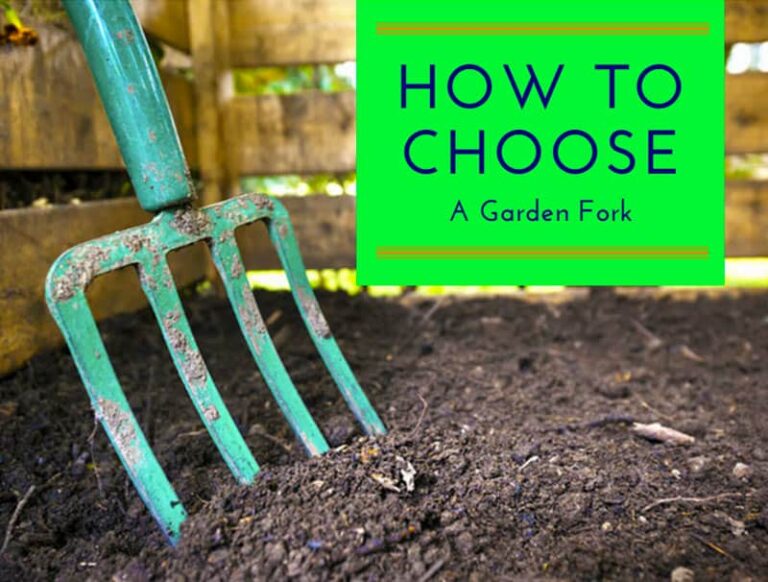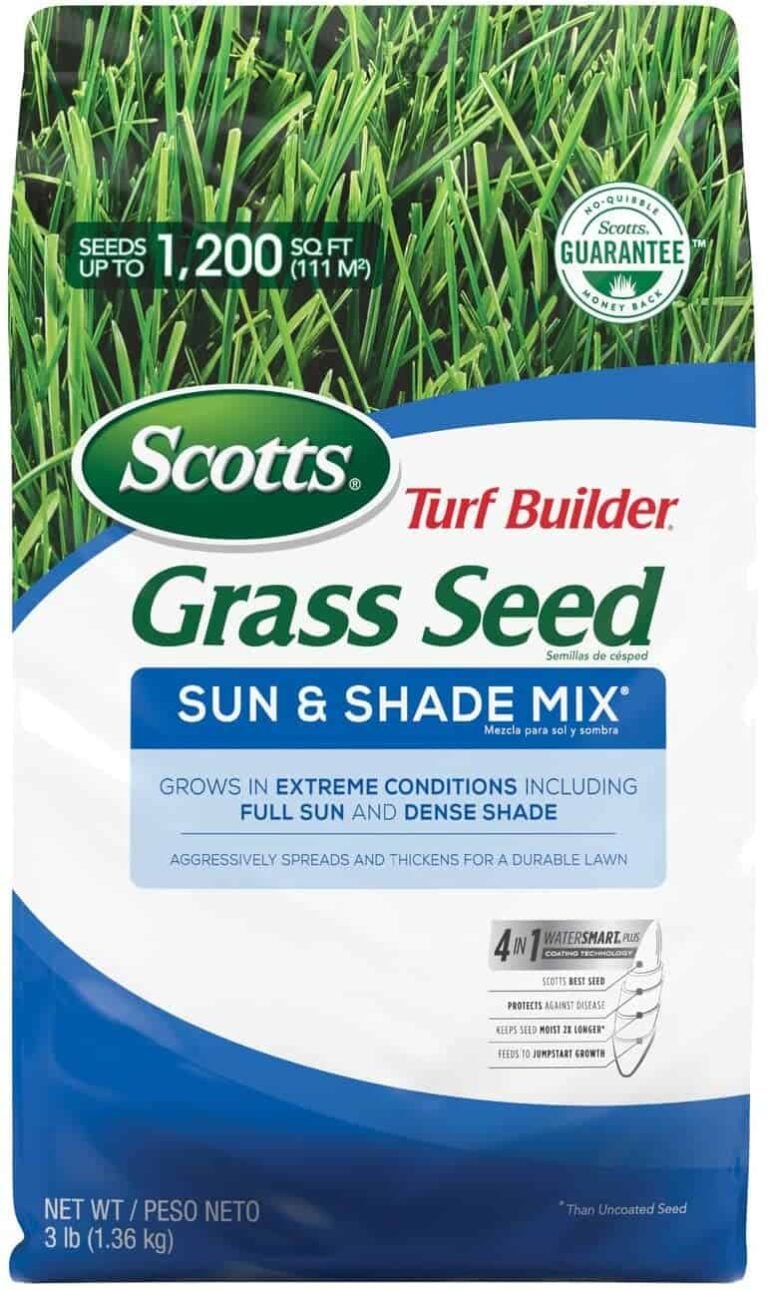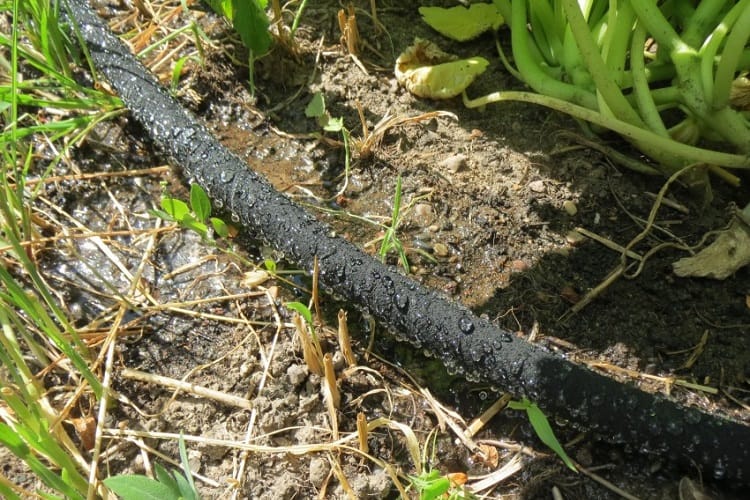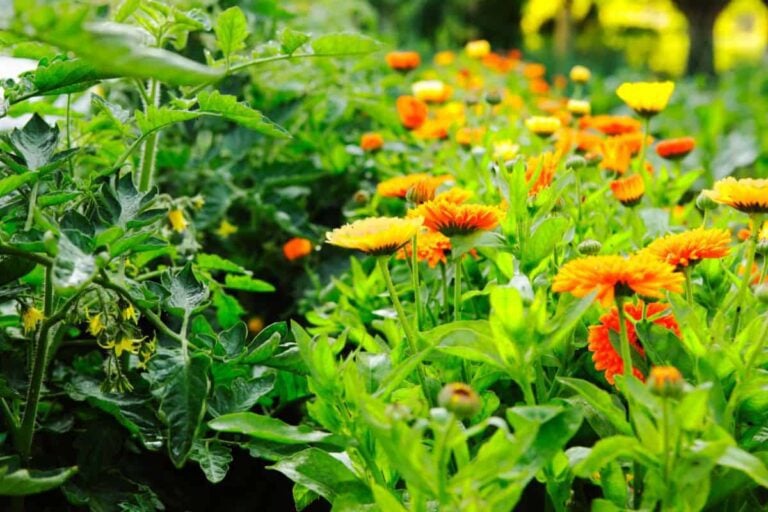Are Mushrooms Decomposers? Benefits in Gardening + Composting
Fungi is present in all soil, meaning that in your garden there are thousands of fungi already, although very few can actually be seen as fungi will only produce toadstools and mushrooms when the weather is right.
However, when they do, don’t worry, it’s natural for mushrooms and toadstools to appear in good soil. Just take it as a compliment for how well your garden is doing.
Having some mushrooms sprout up in your flower beds, vegetable patches, or even on your pristine front lawn can have you pondering a few questions.
How do I get rid of them? Are they affecting my plants? Should I even get rid of them? Well, don’t worry we’ve got some answers for you.
Are Mushrooms Bad For My Garden?
Not at all, mushrooms sprout from fungi that are already present in your garden, and these fungi have a lot of uses for helping plants to grow and thrive.
Fungi are very active microorganisms and are constantly at work in your soil. They quickly decompose any useless organics in your garden, such as thatch and dead plants, and in turn, supply the soil with useful nutrients that the plants can use.
Fungi are the vulture of the plant world, this is why you often see mushrooms growing around tree stumps in forests, they are helping the dead tree to decompose and thus making the soil around the tree nutritious for other plants.
Due to the extra supply of nutrients that the fungi give to your plants, your plants become stronger and more resilient. They can fend off diseases and survive longer without water in the dry summer months.
This added resilience also reduces the stress of the plant, this also allows the plant to be transplanted from soil to soil without a huge amount of shock.
Fungi improve the soil around the plants, improving soil structure and helping to increase drainage, and also suppress soil-born diseases. Fungi is a brilliant asset to have in your garden, and consistently accelerate the growth of plants at every developmental stage.
How Do I Get Rid Of Mushrooms?
Mushrooms and toadstools are just the tip of the fungi iceberg. Getting rid of the mushrooms won’t take away all the beautiful benefits of having fungi in your soil that we’ve just mentioned.
However, if you’ve put a lot of work into making your lawn or flowerbed look as lovely as it does, you don’t really want any mushrooms ruining it.
Besides, mushrooms can be dangerous to have around your garden if you have small children or curious pets, as some mushrooms will upset stomachs if mistaken for a snack.
To get rid of mushrooms, you can buy fungicides from any gardening store, however, this will just offer temporary relief from mushrooms as the fungi will be rooted very deep into the soil.
A great option for getting rid of mushrooms and toadstools is to feed them back to their own fungi, fungi have no qualms about eating their own.
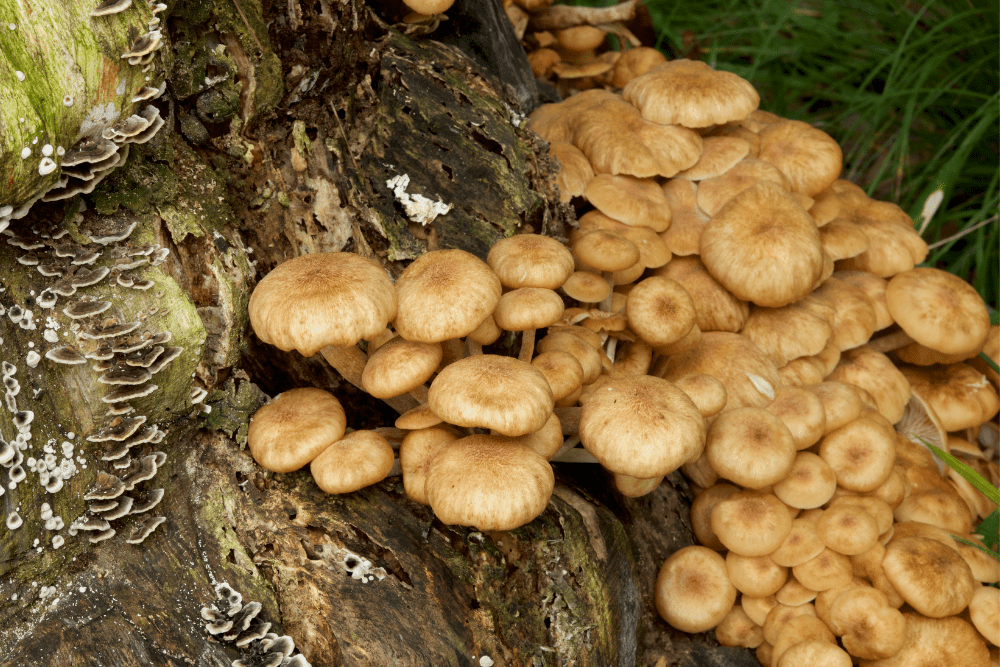
Dig up the mushrooms with a rake and dig a small hole in the ground near where the mushrooms sprouted then bury those mushrooms in this small hole.
The fungi will decompose the dying mushrooms and toadstools and turn them into delicious nutrients for your soil.
The chances are that mushrooms will grow again if you do this, you could keep repeating the process, adding more and more nutrients to the soil around, but there are other options to stop the constant sprouting of mushrooms.
Mushrooms and toadstools will only sprout in cool and damp areas. If you want to discourage mushrooms from sprouting you then need to make sure the soil around the affected area is too dry for the mushroom to thrive.
A simple way of doing this is to water your soil less frequently, or if your affected area is a plant pot, move the plant into the sunlight.
If you’re unable to do any of these things due to weather or placement of the affected area, then grab a bunch of newspaper and bury it around the affected area.
This will absorb a lot of moisture that finds its way into the soil and discourage mushrooms from growing. It takes around 6 weeks for newspaper to decompose in soil so if you see mushrooms sprouting back up again after that time, then repeat the process.
Can I Put Mushrooms In My Compost Bin?
Absolutely! Mushrooms are the king of the compost bin, wild mushrooms or store-bought edible mushrooms can be added to the compost bin.
Because of their special fungi attributes, mushrooms can bring several benefits to your composting. The first one is the speed of decomposition that mushrooms bring.
As we know, fungi are brilliant decomposers in the soil, taking any dead matter and turning it into nutrients for the surrounding plants. It’s no different in a compost bin.
Mushrooms spread filaments and cells that decompose even the toughest organic materials.
Mushrooms aren’t just great at decomposing, they are fantastic at being decomposed as well. Mushrooms are filled with a lot of minerals, they are very high in potassium, phosphorus, and copper.
In fact, one portabella mushroom has even more potassium than a glass of orange juice. Adding mushrooms to your compost bin means adding all of these minerals to the compost.
When you then feed this compost to your plants, they will have all the benefits of added minerals, which include faster growth and better immunity from plant diseases.
Can I Use Mushrooms To Heat Up My Compost?
Heating up a compost pile is a common challenge for anyone who is just starting a compost pile or compost bin. Heating up a compost pile means producing compost heat.
Compost heat is produced when organic material is broken down by microorganisms. If a compost bin or pile is not at around 90-140 degrees Fahrenheit, then your compost will turn into a smelly mess that takes forever to break down.
Heat will also destroy weeds and seeds ensuring that nothing grows in your compost bin taking all of the nutrients out of the compost.
Mushrooms in your compost pile will help to produce compost heat. Mushrooms contain spawn and decomposing mushrooms will make a new spawn.
Mushroom spawn is often used as a compost activator, the microbial activity from the spawn breaks down any organic material in the pile.
This is the main microbial activity that helps decompose and feed nutrients to plants in your garden.
However, to ensure compost heat you must have a good amount of organic material in your bin or pile for the mushrooms to really take effect. A good measure of this is to have a healthy mix of green and brown.
Brown are soil, leaves, and mushrooms, these are your activators because they are full of bacteria and microorganisms that break down the organic matter.
This organic matter is your green, this can be anything from grass clippings to vegetable scraps.
The green is what the microorganisms and bacteria can break down to cause the compost heat. The ratio of brown to green should be around 4 parts green for every 1 part brown.


